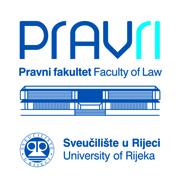NON-LETHAL WEAPONS
THE PRINCIPLE OF PROPORTIONALITY IN ARMED CONFLICT AND THE RIGHT TO HEALTH IN LAW ENFORCEMENT
DOI:
https://doi.org/10.30925/zpfsr.38.2.6Keywords:
humanitarian law; human rights law; disarmamentAbstract
If thinking about weapons, one generally thinks about lethal technology.
However, an abundance of so-called non-lethal weapons, a technology not
aimed at killing but merely incapacitating the human target or military objective,
is also being deployed both within and outside the ambit of armed conflict. Since
non-lethal weapons do not necessarily implicate a zero chance of mortality, but
often lead to severe wounds and tremendous suffering, the use and deployment
of such weapons raise strong humanitarian and human rights concerns.
The prohibition to cause superfluous injuries and unnecessary suffering, as well
as the prohibition of indiscriminate attacks are, amongst others, one of the most
relevant provisions potentially having an influence on the deployment of nonlethal
technology in armed conflict. However, the invocation of the principle of
proportionality may lead to the justification of the use of non-lethal weapons
on the grounds that the military advantage anticipated was greater than the
human suffering caused. Insofar, one must ask whether there is a “red-line”;
where the almost inflationary invocation of the principle of proportionality may
defeat the object and purpose of the Geneva Conventions and therefore render
the deployment and use of non-lethal technology illegal.
Apart from the battlefield, non-lethal weapons are also being deployed in lawenforcement
scenarios, where human rights law plays a pivotal role. In this
regard, one must not look merely at the prohibition of torture and inhuman
or degrading suffering and the right to life but also at the right to health, a
presumably underestimated principle curbing and shaping the use of non-lethal
technology outside the ambit of armed conflict.
Additional Files
Published
How to Cite
Issue
Section
License
Collected Papers is an open access journal. Journal does not charge article processing charges (APC) to authors. It is licensed under CC BY-NC licence 4.0.
Collected Papers of the Law Faculty of the University of Rijeka" is an Open Access journal. Users are allowed to read, download, copy, redistribute, print, search and link to material, and alter, transform, or build upon the material, or use them for any other lawful purpose as long as they attribute the source in an appropriate manner according to the CC BY licence.
The papers published in "Collected Papers of the Law Faculty of the University of Rijeka" can be deposited and self-archived in the institutional and thematic repositories providing the link to the journal's web pages and HRČAK.
Upon acceptance of the manuscript for publication by this journal, the author can publish same manuscript in other journals only with the permission of the Editorial Board (secondary publication). A repeated publication should contain a notice as to where the manuscript was originally published.



